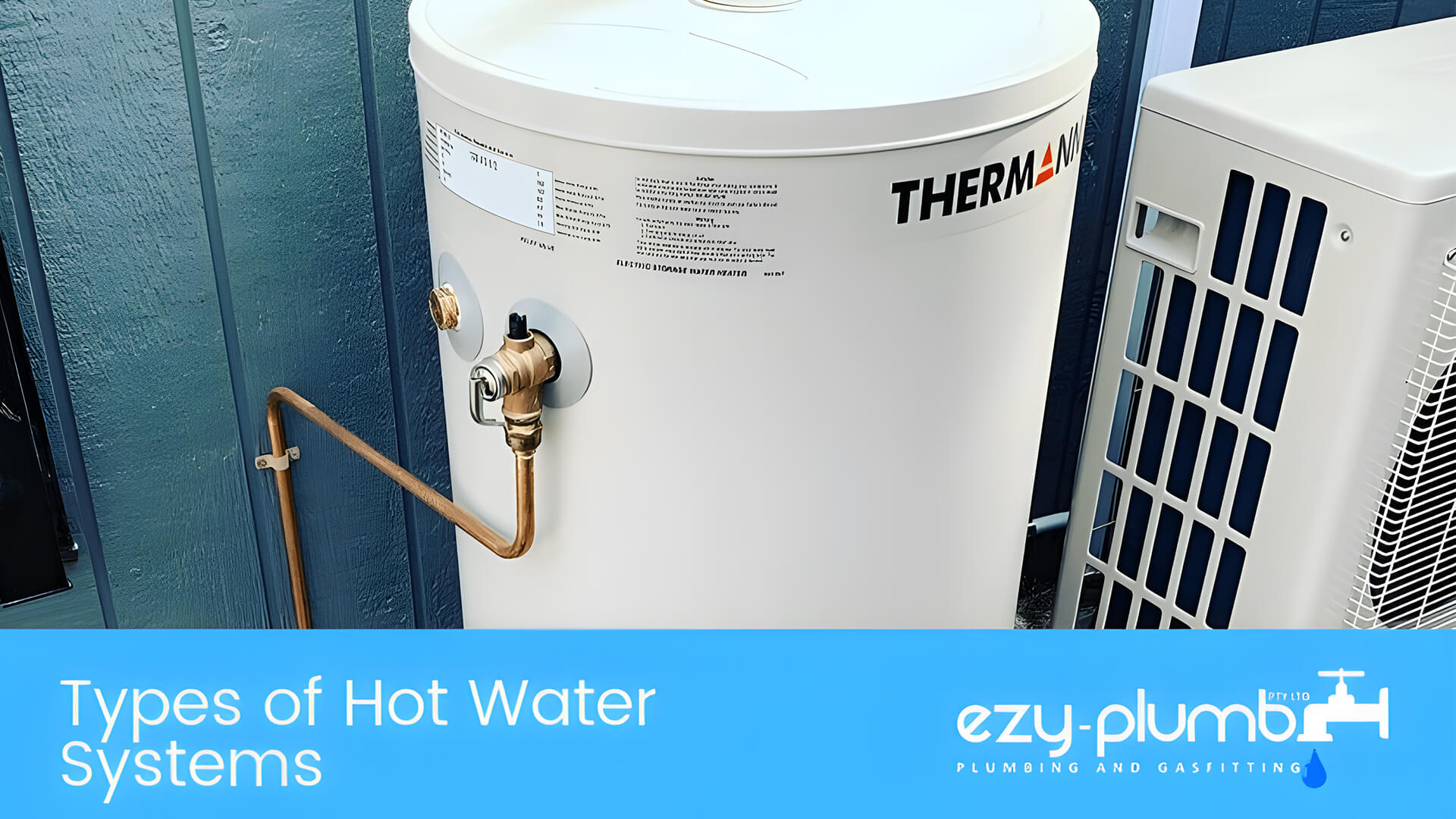It’s a horrible sinking feeling when your old hot water system goes bang, which is so common towards the end of the winter months. It’s not just the prospect of a cold shower; you’ll also hear a lot of complaining from your family members and then dread that looming high repair bill. But there’s always a silver lining, especially regarding the types of hot water systems now available in Australia. In short, this technology area has sped ahead in recent years, leaving you with one burning question: What’s the best hot water system to install?
Here at Ezy-Plumb, we aim to help make that decision as easy as possible.
Compare The Types Of Hot Water Systems – Which One Should You Choose?
Hot water accounts for at least a quarter of your average Australian home's energy bill. So, when considering the best hot water systems on the market, you’ll need to consider the particulars of your property, how your family members use water, and many other factors.
To get the conservation going, here’s a comparison of the types of hot water systems Australians are installing in their homes:
1. Electric
Electric hot water systems heat the water like a kettle with an element inside the storage tank. These tanks come in various sizes and are amongst the most affordable options on the market, but they are not the most energy-efficient hot water systems.
Another electric option is the continuous flow or instantaneous hot water system, which only heats the water when you turn on your hot taps. These systems don’t have a large water flow output and may require 3-phase power to be connected.
2. Gas
Gas hot water systems are very similar to their electric counterparts. The main difference is that a gas burner is used rather than an element. In addition, gas systems are generally smaller than electric tanks because they heat the water much faster.
Another gas option is the continuous flow or instantaneous hot water system. These are very popular and one of the most common hot water systems installed in new homes nowadays as they are energy-efficient and compact. The significant benefit of this system is that water is only heated when a hot tap is turned on, meaning you will never run out of hot water.
3. Solar
The solar hot water system is an increasingly popular ‘green’ option. It is also one of the most common hot water systems installed in new homes, as it uses free energy from the sun to heat your shower rather than electricity or gas. The system involves an array of solar panels usually placed on your roof, although it must be said that the system will still be connected to electricity or gas in case it’s not very sunny!
4. Heat pump
Technically, in the electric hot water system category, a heat pump is much more energy efficient – even though it is usually more expensive to install and louder to run. The technology involved can be likened to a fridge … in reverse! The heat pump cleverly extracts heat from the air and transfers it to the water, which can slash your hot water bill by two-thirds.

Electric, Gas Or Solar: Which One Should You Choose?
Now that you know the different types of hot water systems, you realise you have a lot of choices to make. So the next question would be, which is better: electric or gas? Solar or heat pump?
The best way to make this critical decision about your next hot water system investment is to pick up the phone and ask the friendly Melbourne hot water plumbers at Ezy-Plumb for their advice.
As a rough guide, please consider the following:
- An electric system can heat your water during cheaper ‘off-peak’ times at night, but remember that you will need a storage tank that is big enough to last the whole day.
- Natural gas is cheaper than electricity, and there are no ‘peak’ and ‘off-peak’ tariffs to worry about.
- LPG bottled gas is more expensive than natural gas.
- For an efficient setup, solar panels must be located ideally and cost thousands of dollars to install. A range There are rebates and incentives, not to mention the low running costs, meaning you can recoup the purchase cost over time.
- Heat pumps require a well-ventilated area for installation, which may not be suitable indoors because of the operating noise. Warmer climates are also most suited to this type of installation.
What’s The Best Hot Water System?
Still unsure which hot water systems will work best for your property, family, usage, budget and situation? Our local Bayside Melbourne plumbers are standing by and more than willing to give you advice or come out to your place to run over the options. So call 0402 169 096 now and restore peace and steaming hot harmony at your home with a brand new hot water system.
